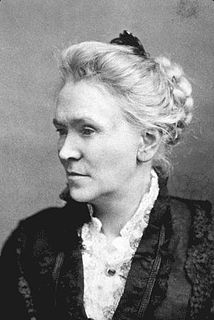A Quote by James Madison
Hence it is that such democracies have ever been spectacles of turbulence and contention; have ever been found incompatible with personal security or the rights of property; and have in general been as short in their lives as they have been violent in their deaths. Theoretic politicians, who have patronized this species of government, have erroneously supposed that by reducing mankind to a perfect equality in their political rights, they would, at the same time, be perfectly equalized and assimilated in their possessions, their opinions, and their passions.
Quote Topics
Been
Contention
Deaths
Democracies Have
Equality
Ever
Found
General
Government
Hence
Incompatible
Lives
Mankind
Opinions
Passions
Perfect
Perfectly
Personal
Personal Security
Political
Political Rights
Politicians
Possessions
Property
Reducing
Rights
Same
Same Time
Security
Short
Species
Spectacles
Supposed
Time
Turbulence
Violent
Would
Related Quotes
A pure Democracy, by which I mean a Society consisting of a small number of citizens, who assemble and administer the Government in person, can admit of no cure for the mischiefs of faction. A common passion or interest will, in almost every case, be felt by a majority of the whole; a communication and concert result from the form of Government itself; and there is nothing to check the inducements to sacrifice the weaker party, or an obnoxious individual. Hence it is, that such Democracies have ever been spectacles of turbulence and contention; have ever been found incompatible with personal security, or the rights of property; and have in general been as short in their lives, as they have been violent in their deaths.
Equality, in a social sense, may be divided into that of condition, and that of rights. Equality of condition is incompatible with civilization, and is found only to exist in those communities that are but slightly removed from the savage state. In practice, it can only mean a common misery.
Equality of rights is a peculiar feature of democracies. These rights are properly divided into civil and political, though even these definitions are not to be taken as absolute, or as literally exact.
It has been the fashion to speak of the conflict between human rights and property rights, and from this it has come to be widely believed that the use of private property is tainted with evil and should not be espoused by rational and civilized men... the only dependable foundation of personal liberty is the personal economic security of private property. The Good Society.
We are bound to maintain public liberty, and, by the example of our own systems, to convince the world that order and law, religion and morality, the rights of conscience, the rights of persons, and the rights of property, may all be preserved and secured, in the most perfect manner, by a government entirely and purely elective. If we fail in this, our disaster will be significant, and will furnish an argument, stronger than has yet been found, in support of those opinions which maintain that government can rest safely on nothing but power and coercion.
It has not been without bitter resistance by the clergy that woman's property and educational rights have advanced. Woman's anti-slavery work, her temperance work, her demand for personal rights, for political equality, for religious freedom and every step of kindred character has met with opposition from the church as a body and from the clergy as exponents of its views.
Democracies have been, and governments called, free; but the spirit of independence and the consciousness of unalienable rights, were never before transfused into the minds of a whole people....The feeling of equality which they proudly cherish does not proceed from an ignorance of their station, but from the knowledge of their rights; and it is this knowledge which will render it so exceedingly difficult for any tyrant ever to triumph over the liberties of our country.
There's been an amazing backlash for the last decade in America: political correctness. In many ways, I think that, while we've been remarkably violent in our media, there's been a real schizophrenia. In private, on the Internet, and on public-affairs shows or talk radio, we're way more explicit than we've ever been. But traditional Hollywood has been much more frightened than it ever was in the '70s about presenting things that could be perceived as politically incorrect.
There's been a systematic propagandizing of American citizens for 30 years to make us forget what America is supposed to be and what our rights are and what our system is and what our core principles are. And one of them since 1807 has been this right that the founding generation put in place, to make sure that military troops would never, ever, ever be deployed in the United States of America for civilian policing.
So strong is this propensity of mankind to fall into mutual animosities, that where no substantial occasion presents itself, the most frivolous and fanciful distinctions have been sufficient to kindle their unfriendly passions and excite their most violent conflicts. But the most common and durable source of factions has been the various and unequal distribution of property.
Civil rights, as we may remember, are reducible to three primary heads; the right of personal security; the right of personal liberty; and the right of private property. In a state of slavery, the two last are wholly abolished, the person of the slave being at the absolute disposal of his master; and property, what he is incapable, in that state, either of acquiring, or holding, in his own use. Hence, it will appear how perfectly irreconcilable a state of slavery is to the principles of a democracy, which form the basis and foundation of our government.
I'm really into the rights of immigrants, the rights of the working poor. I'm one of those little activist types. I probably would have just gone to law school. And the scary part is that I was one of those kids who always tested really well. You put a test in front of me, and I would have been like do-do-do-do-do. I probably would have been some community lawyer somewhere - if anything, that's probably what I would have been doing.































